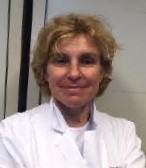Biobehavioral Considerations in the Diagnosis and Treatment of Primary Headache Disorders
Steven M. Baskin, PhD, MSCP
Licia Grazzi, MD
1-day workshop
Date: TBD
Workshop Title
Biobehavioral Considerations in the Diagnosis and Treatment of Primary Headache Disorders
Workshop Description
Headache disorders, in particular migraine, are prevalent chronic neurological disorders that can be highly disabling. This workshop is an in-depth clinical guide to the many advances in the diagnosis and management of migraine, cluster headache, tension-type headache and their many variants. The workshop will first provide the participants with a thorough overview of the diagnosis of the different primary headache disorders. It will then explore the pathophysiology of the different disorders integrating neurochemical, physiological, behavioral, and psychological perspectives. Psychiatric comorbidities will be explored, in particular how anxiety can be a driver of distress and lead to migraine persistence. The pharmacologic, psychophysiological, and behavioral treatment evidence-base will be reviewed as well as new and emerging therapies. In the last few years there have been numerous new migraine specific medications approved for the prevention and acute treatment of migraine, some of which target CGRP, a pain provoking peptide and were designed to specifically act on the trigeminal pain system. The workshop will help the biofeedback therapist understand the basics of successful headache diagnosis and treatment and better communicate with the medical community. Behavioral and psychophysiological protocols will be thoroughly discussed. This workshop will review clinical studies on paradoxical effects of overuse of immediate relief medications in relation to treatment outcome and some of the present controversies on medication overuse headache. Chronic migraine will be thoroughly examined including the transformation process from episodic to chronic headache. Most of the risk factors that progress migraine to high frequency can be ameliorated with behavioral and psychophysiological therapies.
Learning Objectives
1) Perform a headache diagnostic interview and make an informed diagnosis and communicate better with the medical community.
2) Recognize the clinical symptoms and understand the pathophysiology of the different headache types as well as screen for “dangerous” headaches and psychiatric comorbidities.
3) Utilize biofeedback, behavioral therapies, mindfulness, life style modification, emerging neurofeedback protocols, pharmacotherapies, and neuromodulation approaches in the acute and preventive treatment of primary headache disorders.
4) Recognize the difficult issue of chronic migraine and the transformation process from episodic to chronic headache including medication overuse and anxiety sensitivity and interoceptive conditioning.
About Steven Baskin
Steven M. Baskin, PhD, MSCP is director of behavioral medicine services at The New England Institute for Neurology and Headache in Stamford, CT and is an attending psychologist at Greenwich Hospital of Yale-New Haven Health. He also has a private practice in clinical psychology and clinical neuropsychology. He is a medical psychologist (prescribing psychologist) at Crescent City Headache and Neurology in New Orleans. He is a current member of the board of directors of the Headache Cooperative of New England (HCNE) and is the educational director for the annual HCNE Scientific Meeting at Stowe. He is a present editorial board member of the American Migraine Foundation. He is a past board member of the American Headache Society and a past Associate Editor of the journal Headache. He is a past president of the Association for Applied Psychophysiology and Biofeedback (AAPB). He lectures frequently at national and international meetings and has published extensively on primary headache disorders, most recently on comorbid psychiatric factors that may progress migraine to chronic and complicate treatment.
About Licia Grazzi
Licia Grazzi, neurologist, is the Director of the Neuroalgology Department and of the Headache Center, Neuroalgology Unit, at the Neurological Institute C Besta, Milan Italy.
Her scientific research activity concerns clinical and therapeutic aspects on the principal topics of headaches, with clinical trials in headache field, therapeutic innovations: in particular treatment of headaches in young and paediatric age, developing of specific therapeutic programs with behavioural therapies, biofeedback and mindfulness protocols, and also protocols that provide behavioural treatments by web platforms. Publications of several scientific papers and participation to several international scientific meetings on different topics in headache field have been developed and recorded.


